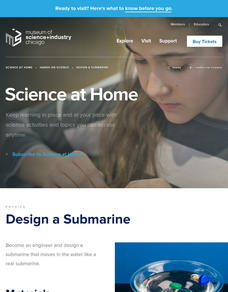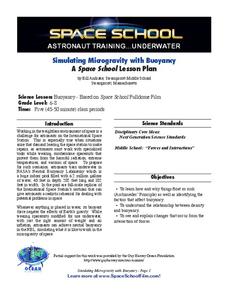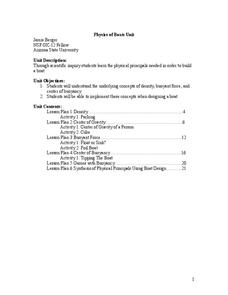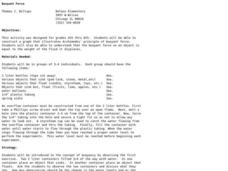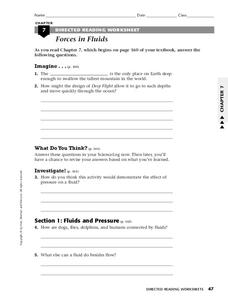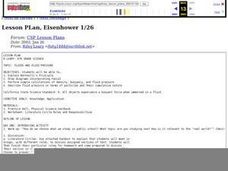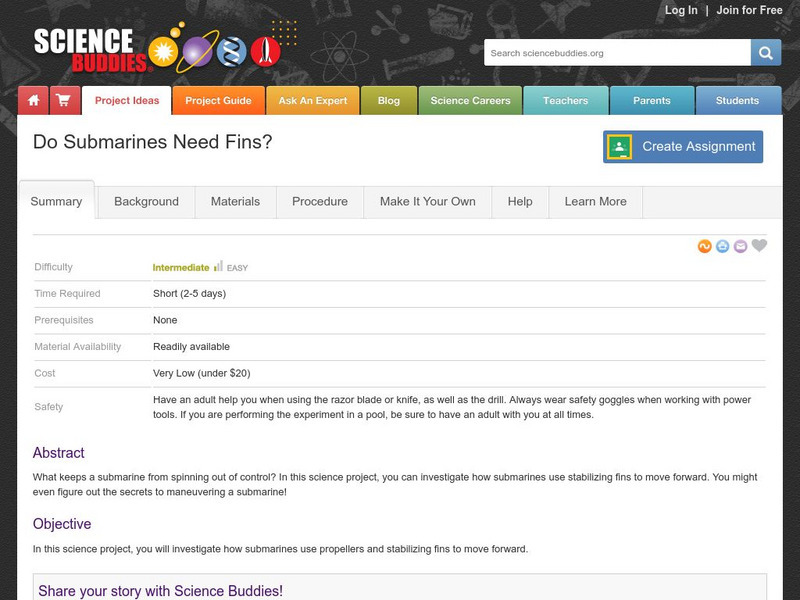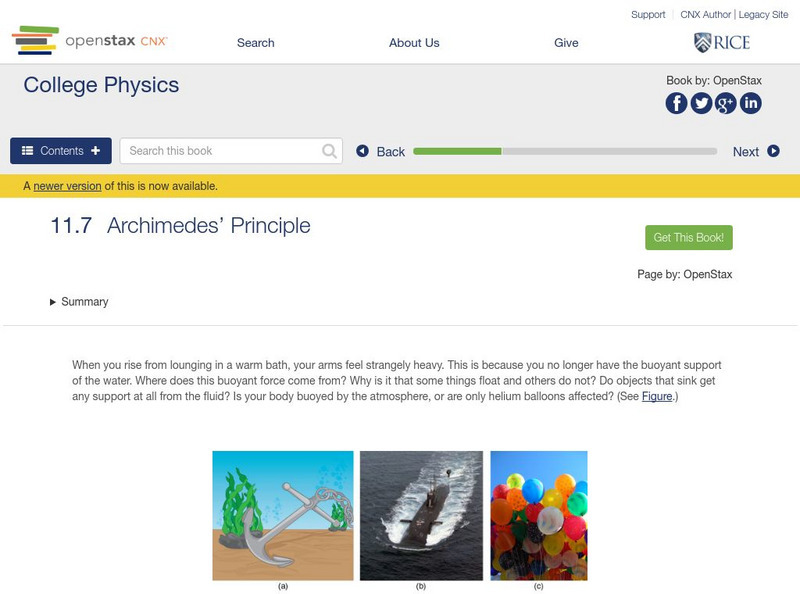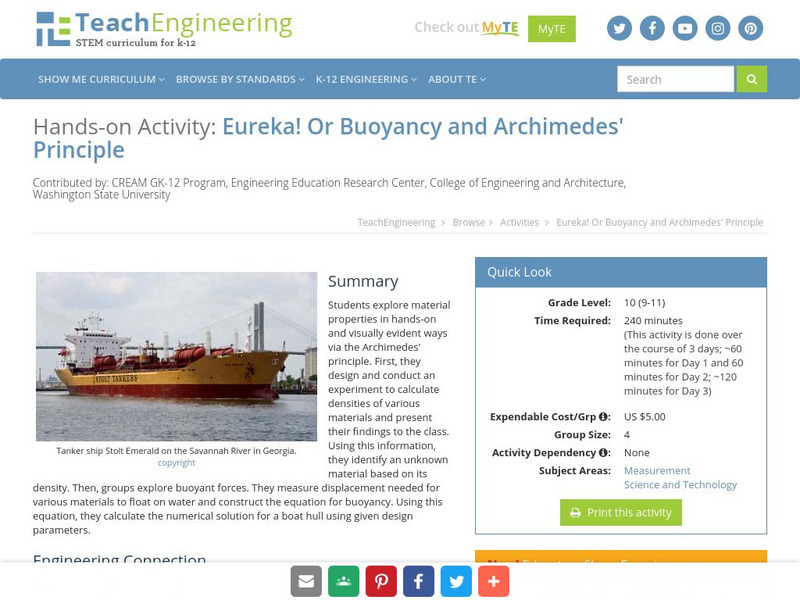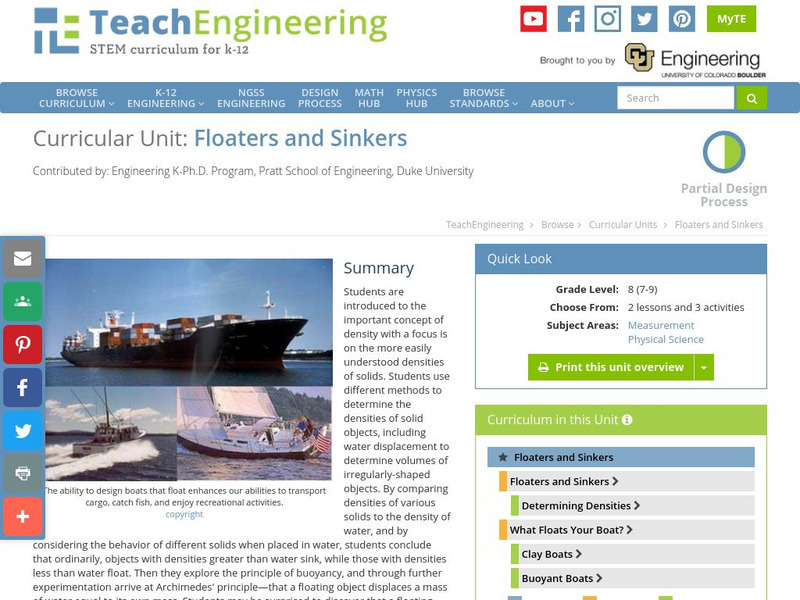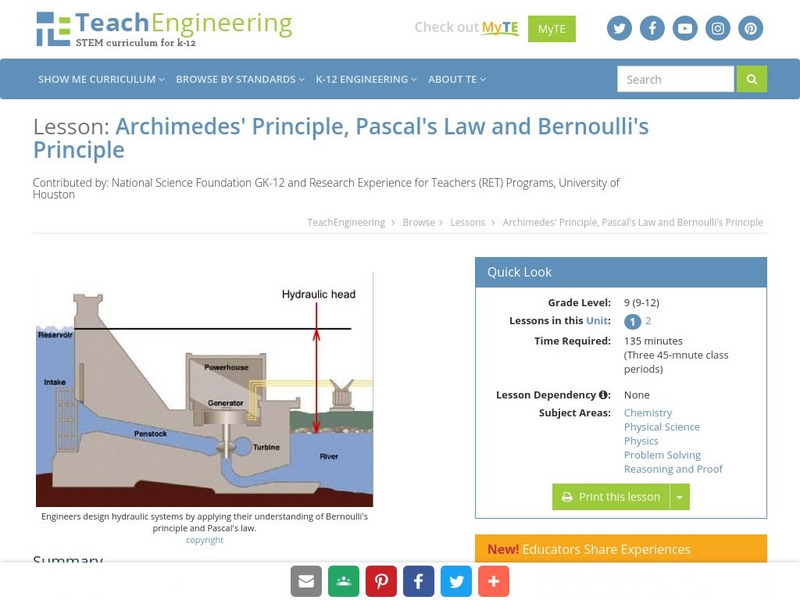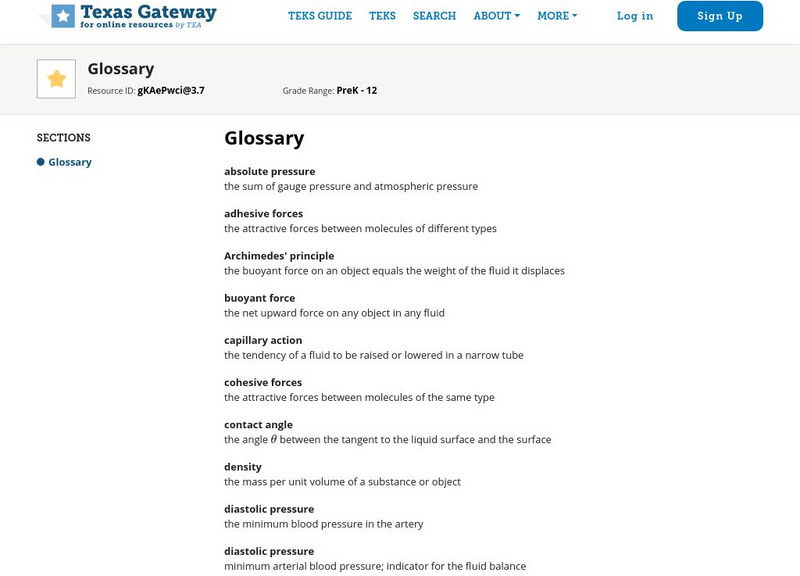Cornell University
Buoyancy
Swimmers know to float by turning their bodies horizontally rather than vertically, but why does that make a difference? In an interesting lesson, scholars explore buoyancy and the properties of air and water. They test cups to see which...
CPO Science
Physics Skill and Practice Worksheets
Stop wasting energy searching for physics resources, this comprehensive collection of worksheets has you covered. Starting with introductions to the scientific method, dimensional analysis, and graphing data, these skills practice...
Museum of Science
Design a Submarine
Don't just sink the boat. Using a closed container as a submarine, pupils experiment to see what to add to the container to make it float, sink to the bottom, and hover in the middle. After finding one option, learners see if they can...
Teach Engineering
Buoyant Boats
Eureka! Using the clay boats made in the previous lesson, learners investigate the idea of buoyancy and water displacement to finish the last installment of five in a Floaters and Sinkers unit. Their observations during the activity...
Florida International University
Simulating Microgravity with Buoyancy
How do astronauts know how to live and work in a weightless environment? It doesn't come naturally! Junior physicists conduct experiments to examine the link between buoyancy and microgravity. Each activity illustrates a different aspect...
American Physiological Society
How Does the Density of a Liquid Affect the Buoyancy of an Object?
Here's a lesson plan that will really float your boat! Introduce physical science scholars to the relationship between buoyancy and density through an assortment of individual and collaborative exercises. Lab groups work together to...
CK-12 Foundation
Scuba Training
How does a scuba diver control whether they sink or float? Scholars observe the relationship between absolute pressure and depth below the surface in an undersea simulation. They control the diver size and depth to center of mass to see...
Urbana School District
Fluids
In 1879, Sir William Crookes discovered the fourth state of matter, plasma. The presentation covers states of matter, phase changes, density, pressure Pascal's Principle, buoyant force, Archimedes' Principle, Bernoulli's Principle,...
Teach Engineering
Cartesian Diver
Amaze your scholars with an activity that uses a Cartesian diver to demonstrate Pascal's Law, Archimedes' Principle, and the Ideal Gas Law. Groups then repeat the process and make their own diver move up and down in a bottle.
Arizona State University
Physics of Boats
Let's go sailing! An instructive unit includes six lessons with multiple activities to teach scholars about density, center of gravity, buoyancy, and the Archimedes Principle. They can complete the final project of building a boat on a...
Curated OER
Archimedes' Principle
In this Archimedes' principle learning exercise, students answer 13 questions about the concepts of Archimedes' principle such as water displacement, buoyancy and force. The answer questions from a lab they did in class to simulate...
Curated OER
Density and Buoyancy Lesson Plan
High schoolers investigate why some objects float or sink in water. For this physics lesson, students calculate the density of clay ball using a mathematical equation. They write a complete lab report about the experiment.
Curated OER
Buoyant Force
Students illustrate Archimedes' Principle of Buoyant Force. For this graphing lesson, students will observe that the buoyant force on an object is equal to the weight of the fluid it displaces. Students will then create a graph showing...
Curated OER
Forces in Fluids
In this forces in fluids learning exercise, students answer questions as they relate to forces in fluids. Students complete a chart about atmospheric pressure.
Curated OER
Eisenhower 1/26
Eighth graders identify and explain what Bernoulli's Principle is and draw diagrams to incorporate Pascal. They also perform simple calculations of density, buoyancy, and fluid pressure. Finally, 8th graders describe fluid pressure in...
CK-12 Foundation
Ck 12 Exploration Series: Simulations: Physics: Scuba Training
[Free Registration/Login Required] A simulation to help you understand how a diver floats! Learn the principles of buoyancy and its relationship to the pressure gradient in a liquid in a gravitational field.
PBS
Pbs Learning Media: Buoyancy Brainteasers: Buoyancy Question
This interactive brainteaser from the NOVA: "Voyage of Doom" Web site challenges you to figure out what causes an object to sink.
Science Buddies
Science Buddies: Do Submarines Need Fins?
In this science project, you can investigate how submarines use stabilizing fins to move forward. Exploring friction and buoyant force you will get closer to understanding how these large ships function. Research resources are included...
Georgia Department of Education
Ga Virtual Learning: Fluids
In this interactive module you will be introduced to a unit on fluid dynamics. Learn how an object's density relates to its mass and volume by completing various activities and interactives.
OpenStax
Open Stax: Physics: Archimedes' Principle
From a chapter on Fluid Statics in a Physics textbook. This section of the chapter provides a detailed discussion of Archimedes' principle, buoyant force, floating and sinking, and the role of density. Includes questions, problems and...
TeachEngineering
Teach Engineering: Eureka! Or Buoyancy and Archimedes' Principle
Students explore material properties in hands-on and visually evident ways via the Archimedes' principle. First, they design and conduct an experiment to calculate densities of various materials and present their findings to the class....
TeachEngineering
Teach Engineering: Floaters and Sinkers
Through this curricular unit, students are introduced to the important concept of density. The focus is on the more easily understood densities of solids, but students may also explore the densities of liquids and gases. Students devise...
TeachEngineering
Teach Engineering: Archimedes' Principle, Pascal's Law and Bernoulli's Principle
Students are introduced to Pascal's law, Archimedes' principle, and Bernoulli's principle through problems and engineering applications.
Texas Education Agency
Texas Gateway: Fluid Statics: Glossary
This is a glossary of terms and definitions used in Chapter 11: Fluid Statics from the AP Physics online text.




